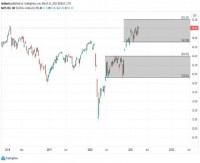Opalesque Industry Update: A client-alert from New York-based law firm, Schulte, Roth & Zabel details four recent developments with respect to Commodity Futures Trading Commission (“CFTC”) regulatory issues that directly affect fund managers:
Final Rules Defining “Swap” and “Security-Based Swap” Under the new regulatory framework established by the Dodd-Frank Act, the CFTC was given regulatory authority over “swaps,” the SEC was given regulatory authority over “security-based swaps” and the CFTC and SEC were given joint regulatory authority over “mixed swaps.” In addition, the CFTC and SEC, in consultation with the Board of Governors of the Federal Reserve System, were authorized to further define the terms “swap” and “security-based swap.” The definitions of these terms determine the scope of a number of the CFTC’s and SEC’s recently-adopted regulatory initiatives, including rules requiring registration and regulation of swap dealers and major swap participants, rules imposing clearing, trade execution, reporting and recordkeeping requirements on the parties to swaps, and availability of the De Minimis Exemptions. The adoption of the definitive definitions by the CFTC and the SEC, which will become effective 60 days after publication in the Federal Register, clears the way for these rules to go into effect. Significantly for fund managers, from Dec. 31, 2012 onward, swaps will be considered “commodity interests” for purposes of the determining a manager’s eligibility to rely on the De Minimis Exemptions made available by Rule 4.13(a)(3) (private funds) and Rule 4.5 (registered funds) under which fund managers need not register as CPOs with the CFTC. This means that the initial margin posted in connection with swap transactions will need to be included in determining whether a fund meets the “5 percent test,” of Rule 4.13(a)(3)(ii)(A) or Rule 4.5[1] and in determining whether the net notional value of commodity interests meets the “100 percent test,” established under these rules.[2] The 585-page release can be found on the CFTC’s website.[3] We will be addressing the specifics of the release in a future Alert. Temporary Reinstatement of the Rule 4.13(a)(4) Exemption from CPO Registration On Feb. 24, 2012, the CFTC issued final rules that rescinded the CFTC Rule 4.13(a)(4) exemption from CPO registration (and the accompanying CTA exemption for 4.13(a)(4) pools under Rule 4.14(a)(8)(i)(D)). However, the CFTC allowed private fund managers that claimed the exemption on or before April 24, 2012 to continue to rely on the exemption until Dec. 31, 2012. This meant that CPOs launching new funds after April 24 could not claim 4.13(a)(4) exemptive relief, while those that had claimed the exemption for their existing or newly launched funds prior to April 24 would have the benefit of the exemption until Dec. 31, 2012. On July 13, 2012, in response to a request for relief from industry groups,[4] the CFTC staff agreed that there is disparate treatment of similarly situated entities where the timing of a fund’s launch is the sole determining factor whether Rule 4.13(a)(4) is available and issued no-action relief to remedy the situation.[5] The relief effectively temporarily reinstates Rule 4.13(a)(4) even for CPOs of those funds for which the exemption was not claimed on or before April 24. Nonetheless, the relief reiterates that the Rule will be rescinded for all CPOs on Dec. 31, 2012. Since electronic filing of the 4.13(a)(4) exemption on the NFA’s website is no longer available, the exemptive filing is done by submitting a claim for exemption via email. The claim is filed by emailing certain basic CPO information to mdsionoaction@cftc.gov. Additionally, CTAs advising such funds can make a similar claim of exemption. These claims can be filed immediately. Denial of Relief Extending Effective Dates Past Dec. 31, 2012 The above-mentioned industry groups’ request also asked the CFTC to extend the date on which swaps would be considered to be commodity interests for purposes of the de minimis tests in Rule 4.13(a)(3) and Rule 4.5 until 10 months after the effective date of final rules defining the term “swap” and setting initial margin requirements for swaps. The CFTC denied this request, noting that fund managers are being given sufficient time to implement procedures for purposes of testing compliance with the De Minimis Exemptions since the definition of swap has now been adopted. The CFTC’s response further noted that, although margin requirements for uncleared swaps had not yet been adopted, those requirements would only be effective for swaps entered into after the effective date of any new rule and that, in the interim, CPOs should have the necessary information regarding margin payments made for their current swaps portfolio. NFA Guidance and Deferred Registration The NFA Guidance introduced a new feature to the registration process under which fund managers and advisers that need to register as CPOs by Jan. 1, 2013 have the option of completing the registration process now, but deferring the effectiveness of the registration until Jan. 1, 2013. Historically, the CPO registration process has taken approximately four-six weeks (but can vary widely, depending on the nature of the background information provided). The NFA expects an influx of many new registrants over the course of the next few months (from managers of private funds and registered funds that will no longer meet the requirements of the De Minimis Exemptions. Thus, it is expected that the registration process may take longer than usual as the year progresses. Under the registration option the NFA has made available, a fund manager will be able until the end of 2012 to continue to rely on the Rule 4.13(a)(4) or Rule 4.5 exemption as in effect prior to amendment and not be subject to various requirements applicable to registered CPOs (such as quarterly statements and audited year-end financial statements to investors, as well as the new Form CPO-PQR and Form CTA-PR) until Jan. 1, 2013.
[1] Under the “5 percent test” in CFTC Rule 4.13(a)(3)(ii)(A), the aggregate initial margin, premiums for commodity interests (and required minimum security deposit for retail forex transactions), determined at the time the most recent position was established, cannot exceed 5 percent of the liquidation value of the pool’s portfolio after taking into account unrealized profits and unrealized losses. The “5 percent test” in CFTC Rule 4.5(c)(2)(iii)(A) is quite similar except that commodity interests used for bona fide hedging purposes do not need to be counted. [2] Under the alternative “100 percent test” in Rule 4.13(a)(3)(ii)(B), the aggregate net notional value of the pool’s commodity interest and security futures positions, determined at the time the most recent position was established, cannot exceed 100 percent of the liquidation value of the pool’s portfolio, after taking into account unrealized profits and unrealized losses. The “100 percent test” in CFTC Rule 4.5(c)(2)(iii)(B) is quite similar except that commodity interests used for bona fide hedging purposes do not need to be counted. [3] The text of the final rule release can be found at: http://www.cftc.gov/ucm/groups/public/@newsroom/documents/file/federalregister071012c.pdf. Please note that the text of the final rule release is subject to change until published in the Federal Register. [4] The request for no-action relief was submitted by the Managed Funds Association, Investment Adviser Association, Alternative Investment Management Association, Ltd. and the Investment Company Institute. [5] The no-action letter can be found at: http://www.cftc.gov/ucm/groups/public/@lrlettergeneral/documents/letter/12-03.pdf.
BM
|
Industry Updates
Recent CFTC rule changes will effect fund managers
Friday, July 20, 2012
|
|





 RSS
RSS









